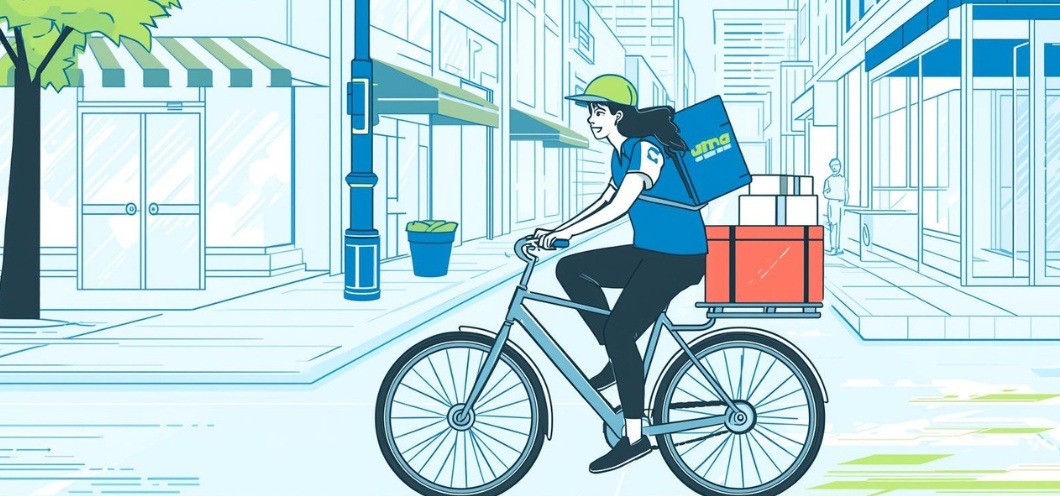- Aishwarya Wagle
- 936
Fast, efficient, and eco-friendly—these are the new pillars of last-mile delivery. With sustainability becoming a top priority for businesses, innovative green logistics solutions are taking center stage. From electric vehicles (EVs) to micro-mobility options like cargo bikes and drones, the future of last-mile delivery is all about reducing environmental impact while keeping customers satisfied.
Why Sustainability Matters in Last-Mile Delivery
Sustainability is no longer just a trend; it’s an expectation. As consumers and governments push for greener solutions, businesses must rethink their delivery strategies. The shift toward eco-friendly logistics is not just about corporate responsibility—it’s a competitive advantage that enhances brand reputation and customer loyalty.
The Rise of Electric Vehicles (EVs)
The transition from fuel-powered delivery vehicles to EVs is accelerating. These vehicles produce zero emissions, helping businesses significantly cut down their carbon footprint. With advancements in battery technology and expanding charging infrastructure, EVs are becoming a practical and sustainable alternative for last-mile delivery.
Micro-Mobility Solutions: Cargo Bikes & Drones
Urban congestion and pollution call for smarter delivery solutions. Cargo bikes are an excellent way to navigate busy city streets, offering an efficient, low-emission delivery method. Meanwhile, drones are revolutionizing last-mile logistics by providing ultra-fast and environmentally friendly deliveries, especially in hard-to-reach areas.
The Impact on Brand Reputation
Consumers are increasingly choosing brands that align with their values. Implementing sustainable delivery practices not only reduces environmental harm but also strengthens a company’s image. Businesses that prioritize eco-friendly logistics are more likely to gain customer trust and stand out in a competitive market.
The Road Ahead for Green Logistics
Looking ahead, sustainability in last-mile delivery will continue to evolve. Companies investing in green technology, alternative fuels, and optimized delivery routes will stay ahead of the curve. The push for net-zero emissions and smarter logistics solutions will define the future of last-mile delivery.
Tags:
E-CommerceRetail InnovationRetail TrendsAuthor - Aishwarya Wagle
Aishwarya is an avid literature enthusiast and a content writer. She thrives on creating value for writing and is passionate about helping her organization grow creatively.
Popular Post





